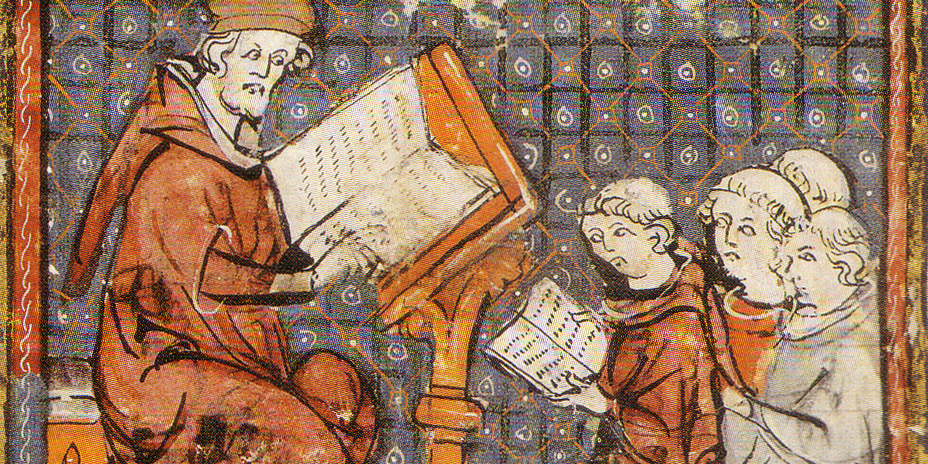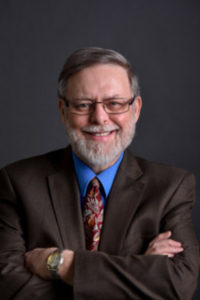
How Should We Teach the Doctrine of the Trinity?
The doctrine of the Trinity obviously is in crisis today. Even conservative confessional Protestants and Evangelicals are writing things that are incompatible with classical, Christian orthodoxy. Since the classical, Christian orthodox doctrine of God is the true teaching of Scripture, this means that our emphasis on biblicism and our refusal to take the history of theology seriously enough has allowed the rise of teachings that align better with ancient Near Eastern and Greco-Roman mythology than with the Bible. I cannot believe that this outcome was what the best of the Protestant reformers envisioned in launching the Reformation.
James Dolezal blew the whistle on this trend in his book, All That is God, and showed that departures from classical Christian theism are not limited to process theologians and liberal theology in general but occur among “conservatives” as well. Stephen Holmes outlined in his book, The Quest for the Trinity, how the supposed “Trinitarian revival” of the twentieth century was actually a massive revision of the tradition, not a revival of it. Lewis Ayres sums up trends in recent patristic scholarship that illuminate the difference between the pro-Nicene theology of the fourth and fifth centuries and modern doctrines of God in his magisterial, Nicaea and Its Legacy: An Approach to Fourth-Century Trinitarian Theology. He shows that the shadow of Hegel looms large over twentieth century Trinitarian theology and that contemporary theologians don’t even consciously reject Nicaea simply because they do not even engage it.
Clearly, bible colleges and seminaries (not to mention liberal arts colleges and universities) have failed to teach the doctrine of the Trinity in such a way that the church maintains orthodoxy and resists the spirit of the age. This is the case even though almost all these institutions profess to believe in the classical doctrine of God. On what do I base the claim that our educational institutions have failed? Here are three data points to consider.
- Most (nearly all?) biblical scholars working today took a course in seminary on doctrine of God proper and one on early church history, yet most are incapable of handling the doctrine of the Trinity with skill and accuracy.
- Many, if not most, pastors today are either succumbing to various iterations of relational theism or else confused as to why they should maintain adherence to the Reformation confessions on issues like Divine simplicity, immutability, impassibility and eternity.
- Among systematic theologians themselves, the most common tendency is either to engage in revisionism or else to teach the traditional doctrine without enthusiasm.
What should we do? How should we teach the doctrine of the Trinity today? Let me suggest several isssues we need to consider.
Ressourcement
First of all, as you would expect me to say, I would remind us that we need to engage in a project of theological retrieval. I have written a lot on this elsewhere, so I won’t beat that drum here except to make a suggestion on seminary curriculum. Every college and seminary should hire, as one of the first two or three faculty positions, a specialist in patristic theology. That person should be assigned to teach both the first course of systematic theology (including the doctrine of God proper) and the first course in church history (including patristics). The main outcome of those two courses should be a clear understanding of the classic Christian doctrine of God as it came to expression in the fourth century and is symbolized by the Nicene Creed. This is foundational to the rest of the curriculum.
An Biblical-Historical-Systematic Approach
Secondly, I would suggest that we not teach the doctrine of the Trinity by listing a series of conclusions about the doctrine such as the ousia-hypostases distinction, inseparability of operations, the eternal relations of origin, etc. It is not that these conclusions are wrong, but it is like teaching mathematics by providing nothing but questions and answers. Instead, I would suggest an historical approach to the topic, by which I mean tracing out how the Spirit led the church to deeper truth about God over time.I would suggest an historical approach to the topic, by which I mean tracing out how the Spirit led the church to deeper truth about God over time. Click To Tweet
I think it is important to start with biblical exegesis and pay attention to biblical theology. Then we should examine how the early church worked through the various conflicts that arose as they contemplated what the Bible says about the Father, Son and Holy Spirit, especially in the fourth century, in order to come up with the wording of the creed, the principles of Trinitarian theology and definitions of heresies. The relationship of biblical theology to pagan philosophy is critical to understand, as is the way the fathers interacted with the philosophers. Distinguishing between various philosophical schools is important here. Note, we need to engage with historical philosophers, not with “philosophy” in general.
The alternatives that were considered need to be grasped and the reasons why the church went this way rather than that way on key issues need to be understood. Of course, it is complicated for us because the key trinitarian terminology is in both Greek and Latin and it is also necessary to understand some Hebrew as well. So, it is a big job, but there is nothing one learns in seminary that is more important. Therefore, it should get as much time and energy as it takes. If it takes half of the M.Div. program to do all this, then that is preferable to skipping over the foundations in a mad rush to be “relevant.”
Mythology and Metaphysics
Thirdly, it is critical for students to understand that the Bible is special revelation from God given to his people in the midst of ancient Near Eastern and Greco-Roman cultures that were mythological in nature. This means that Scripture is given to polemicize against the myths and to correct their errors. It is critical that we see the difference between a myth in which the material cosmos is eternal and the teaching in Genesis 1 of creation ex nihilo. Why? This is important because it is the foundation of the transcendence of the Christian God. Unlike the gods of the myths, the God of the Bible cannot be understood as inhabiting the space-time universe. The Christian God precedes and creates all that is not God, so the being of the Christian God is not continuous with the being of creation. God’s being is eternal and self-existent, whereas the being of the creation has a beginning and is contingent.The Christian God precedes and creates all that is not God, so the being of the Christian God is not continuous with the being of creation. Click To Tweet
It is also important to see how the Christian doctrine of God differs from the metaphysical God of the Greek philosophers. They had no concept of creation ex nihilo so they did not have an adequate account of the Creator-creature distinction. The church fathers did not want to say that the God of the Bible is not the First Cause of the universe, but they also did not want to leave the impression that that is all that the God of the Bible is. Understanding their dilemma and how they dealt with it is of great importance for us today for understanding how our doctrine of God relates to false understandings of God.
To put it bluntly, the church today is in danger of falling into mythology because Western culture has rejected the Christian God and is insisting that our doctrine of God fit into the philosophical naturalist framework that dominates the academic world of our age. But we need to understand why we cannot revise the classical theist doctrine of God so as to make it compatible with modern philosophical naturalism without falling into some sort of mythological way of thinking about God. What this means is that we must not keep theological issues totally separate from Old Testament theology or from the history of philosophy. A naïve biblicism that thinks that all we need to do is biblical theology fails us here.
Conclusion
The challenge is not to adopt a critical spirit that just makes us miserable to be around, but rather to model what it means to love the Lord our God with all our minds. Click To TweetI talk to pastors and students on Twitter, Zoom and email all the time about these issues and I find myself having to field the same basic questions over and over again. I’m not complaining; I am honoured to be of any small service I can to those who are called to teach and preach God’s Word. But it is unfortunate that such elementary theological truths are so poorly understood even by those who have a theological degree. There is no excuse for it, and I do not blame the students, but rather the teachers (of whom I am one).
Those of us called to be teachers have a heavy responsibility, as James 3:1 says. We all need to do a better job, collectively, of passing on the faith (2 Timothy 2:1-2). The challenge is not to adopt a critical spirit that just makes us miserable to be around, but rather to model what it means to love the Lord our God with all our minds. In an age of sophistry, shallowness and pagan mythology, it is not easy to teach pure doctrine. But we are called to do so anyway. May the Lord help us to be precise, careful, profound and clear in what we say about God the Holy Trinity: Father, Son and Holy Spirit.
________
For an in-depth treatment of the issues discussed here, see my book, Contemplating God with the Great Tradition: Recovering Trinitarian Classical Theism (Baker, 2021).
** This article was originally published in Dr. Carter’s newsletter, The Great Tradition.

